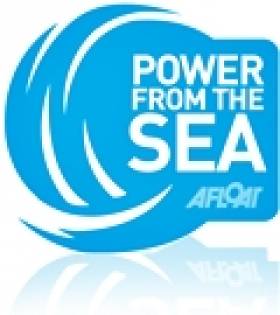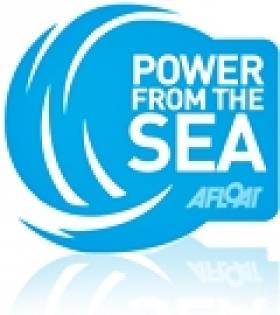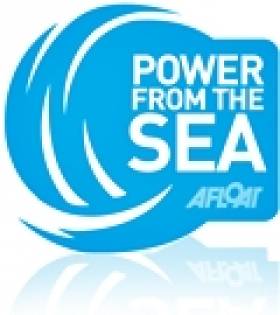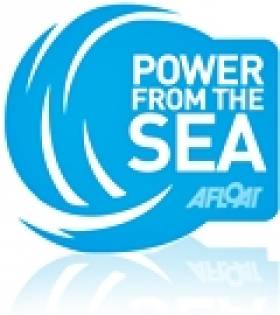Displaying items by tag: Sustainable Energy Authority of Ireland
Dublin Hosts Ocean Energy Conference
#POWER FROM THE SEA - The fourth International Conference on Ocean Energy (ICOE) begins tomorrow Wednesday 17 October at the Convention Centre in Dublin's Docklands.
Over 750 international experts and world-leading companies in ocean energy will gather in Ireland’s capital city for the three-day conference, hosted by the Sustainable Energy Authority of Ireland (SEAI) in association with the European Ocean Energy Association.
Global industry and academic experts in marine renewable energy will present over a hundred papers on themes important to growing this new marine sector.
The conference also provides an opportunity for a trade exhibition where many of the top industrial players will demonstrate the latest technologies in harnessing renewable energy from the sea.
The International Conference on Ocean Energy is the global marine energy event focused on the industrial development of renewable marine energy. Held every two years, the goal of the conference and exhibition is to share recent experiences from research and demonstration efforts.
It aims to accelerate development by stimulating collaboration networks between companies and research and development centres. It also specifically targets engagement of the experience of operators in related marine and power industry sectors.
For more details see the information flyer available to read or download HERE.
UCC Wave Energy Trials Central to New Maritime Cluster
#POWER FROM THE SEA - A €9 million Europe-wide wave energy trial programme is one of the key elements of a new Government programme designed to transform Ireland as a maritime nation.
According to The Irish Times, University College Cork's Hydraulics and Maritime Research Centre will run testing of wave energy, tidal energy and offshore wind energy devices across a network of sites in 12 European countries participating in the new marine renewables infrastructure network Marinet.
Irish test sites in the network include the national ocean test facility in Cork and centres operated by the Sustainable Energy Authority of Ireland (SEAI) at Galway Bay and Belmullet.
The UCC centre also forms part of the new Irish Maritime and Energy Resource Cluster (IMERC), launched last Friday by Taoiseach Enda Kenny.
The cluster comprises UCC, the Irish Naval Service, Cork Institute of Technology and the National Maritime College of Ireland with the initial aim of creating 70 new research jobs by 2014 in the areas of wave energy, green shipping and sustainability of ocean resources.
IMERC director Dr Val Cummins said: “The aim of IMERC is to promote Ireland as a world-renowned research and development location that will unlock Ireland’s maritime and energy potential."
The Irish Times has more on the story HERE.
- Irish Naval Service
- maritime
- Cork
- Galway Bay
- Belmullet
- National Maritime College of Ireland
- wind energy
- UCC
- Cork Institute of Technology
- renewable energy
- wave energy
- sustainable energy
- tidal energy
- network
- testing
- Sustainable Energy Authority of Ireland
- Taoiseach Enda Kenny
- SEAI
- Hydraulics and Maritime Research Centre
- Marinet
- devices
- Irish Maritime and Energy Resource Cluster
- IMERC
- Dr Val Cummins
New Scheme to Measure Noise Pollution from Wave Energy
#POWER FROM THE SEA - The Sustainable Energy Authority of Ireland (SEAI) is teaming with IBM in a new project to assess the noise levels of wave energy devices off the Irish coast.
The scheme will see an array of noise sensing equipment such as hydrophones deployed in Galway Bay to monitor the noise levels of wave energy conversion devices in real time, as well as map patterns of marine life in the area.
According to AOL Energy, noise pollution at sea is a chief concern, having a disturbing effect on fish migrations among other marine ecosystems.
The west of Ireland will prove an important case study in this regard, as it hosts one of the world's largest wave energy infrastructures.
"Underwater noise is a global environmental issue that has to be addressed if we are going to take advantage of the huge potential of ocean energy," said EU Commissioner for Research, Innovation and Science, Maire Geoghegan-Quinn.
AOL Energy has more on the story HERE.
Ireland Risks Missing Out On Renewable Energy Benefits
Ireland must do more to develop its port and shipping services or risk missing out on the benefits of the growning renewable energy sector.
That was the message from a new analysis compiled by the Sustainable Energy Authority of Ireland and the Irish Maritime Development Office, as reported by Renewable Energy Magazine.
The current lack of supply services and equipment for renewables in Irish ports could threaten the country's promise in the fields of offshore wind, tidal and wave energy, the report states.
It is estimated that the total value of such renewable energy sectors could be as much as €16 billion.
The east coast has been identified as the best location for offshore wind and tidal projects, while the south and west coasts were best for wave power and wind farms.
“We now need to look at the investment in infrastructure required if we are to properly capitalise on the current opportunities in this area," said the report.
Renewable Energy Magazine has more on the story HERE.































































